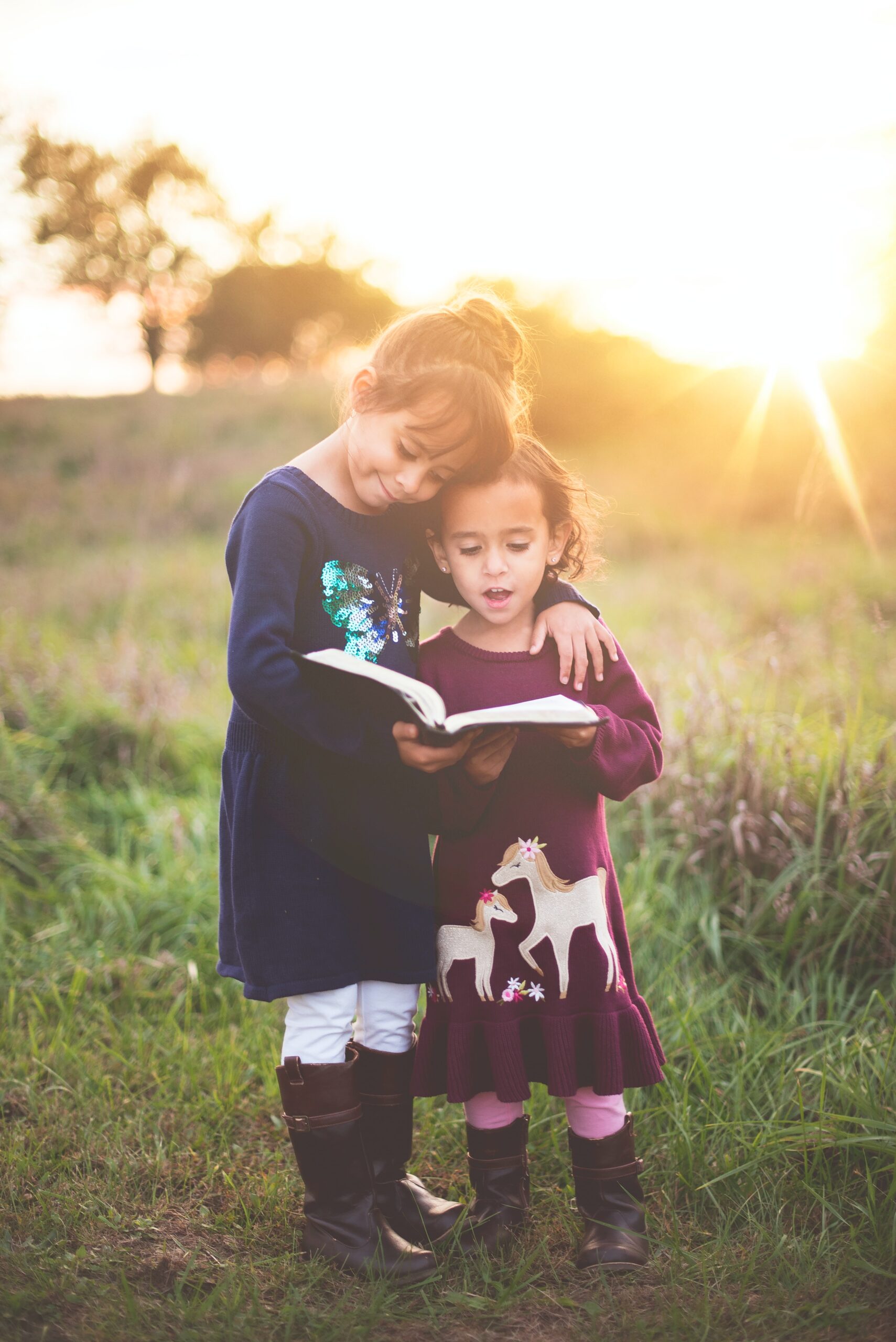I don’t know how many of you all can relate, but anytime my kids get anything from anyone, I immediately turn into that cringy mom that’s like “and what do you say?” And every time, I’m expecting them to give me a big hug and enthusiastic THANK YOU! And almost every time, I get some sort of sheepish mumbled “thank you” at best!
And it got me thinking – do I really just want my kids to simply say the words “thank you,” or do I want it to be deeper than that? Do I want them to truly embody a life of deep gratitude?
Because gratitude is more than words. It is an internal experience. A few years ago, researchers at the University of North Carolina at Greensboro conducted a study called the Raising Grateful Children Project. And they explored gratitude experiences with families as their children grew from kindergarten to teenagers.
What they found is that gratitude is expressed in four parts:
- What we NOTICE in our lives for which we can be grateful
- How we THINK about why we have been given those things
- How we FEEL about the things we have been given
- What we DO to express appreciation in turn
Here are a few ways we can help our children truly embody gratitude:
1. Help them gain awareness
One of the most effective ways we can help our children gain an awareness that leads to gratitude is by asking them questions.
NOTICE: Call attention to it when people (including your kids!) do things that go beyond what’s expected — helping without being asked, being especially thoughtful, or taking extra time to do something because it’s important to someone else.
THINK: Why do you think you received this gift? Do you think you owe the giver something in return? Do you think you earned the gift because of something you did yourself? Do you think the gift was something the giver had to give you? If you answered no to these questions, then you may be more likely to be grateful.
FEEL: Does it make you feel happy to get this gift? What does that feel like inside? What about the gift that makes you feel happy? These questions help the child connect their positive feeling to the gifts that they receive in their lives.
We can also encourage them to talk about how showing appreciation makes other people feel. Try asking your child how they feel when people say thank you to them for doing something nice, and then how they feel when they don’t. Going over his own feelings will help them understand how his behavior affects others and make it easier for them to understand the emotional benefits of being grateful
And we can actually use these same types of questions when we feel or notice that our kids are missing the opportunity to experience and express gratitude. So maybe it’s a comment that feels a little entitled or a refusal to say thank you, we can still use a lot of these questions just in the reverse.
2. Encourage the practice of gratitude
This is the final part of gratitude: the DOing part. Here’s what these questions might sound like:
Is there a way you want to show how you feel about this gift? Does the feeling you have about this gift make you want to share that feeling by giving something to someone else?
3. Model gratitude
In parenting, we’ve gotta be it if we want to see it, right?! Our kids notice – everything.
We can model the NOTICE-THINK-FEEL-DO parts of gratitude for our kids. And sometimes it’s just saying our thoughts out loud – I love these earrings grandma gave me for my birthday. They’re my favorite color. It was so thoughtful of her to get them for me when she saw them. It just reminds me how well she knows me and how much she loves me. I’m going to call her and thank her. I think this is a beautiful thing for our kids to hear.
Finally friends, don’t let all of this overwhelm you. You can start slowly. Gratitude is a practice, so making it a habit is going to take time. Maybe pick one thing to work on until it becomes a habit and then build from there. That’s parenting – it’s a moment-to-moment journey.
Let me know in the comments below – which part of gratitude are you going to focus on first with your kiddos?!

+ show Comments
- Hide Comments
add a comment